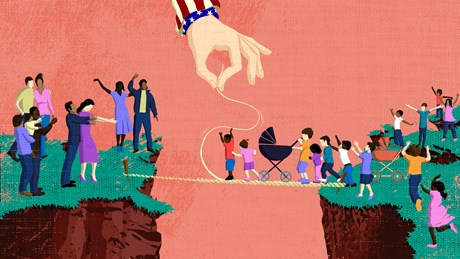Experts debate State Department strategy to let the little children come less.

Last fall, America’s only active accreditor of international adoption agencies quit.
The Council on Accreditation (COA) protested that the US State Department was requiring “significant changes” that would likely reduce the already record-low number of intercountry adoptions, put small adoption providers out of business, and prohibit prospective parents from pursuing such adoptions.
However, the State Department argues that the changes in question aren’t changes at all. Officials point back to a 2008 agreement by the United States to adhere to the Hague Adoption Convention, an international attempt to regulate intercountry adoptions.
“We came to realize there were pieces of the regulation that were not being enforced,” a State Department official, who requested anonymity, told CT. Making sure the Hague laws are followed is crucial for helping foreign countries entrust their children to American parents, she said.
That was the motivation behind a set of proposed regulatory revisions which included a “country-specific authorization” in order to work in some countries, beefed-up training for adoptive parents, and a record of all financial transactions with foreign service providers.
The changes were meant to be part of “proactive efforts to maintain intercountry adoption as a viable option for children in need of permanency around the world,” the State Department stated in its spring report to Congress. For example, introducing country-specific authorization means that not all agencies have to get authorized for all countries.
But almost no one else in the adoption community saw it that way. A petition to immediately withdraw the proposed rules garnered more than 27,000 …
Source: Christianity Today Most Read